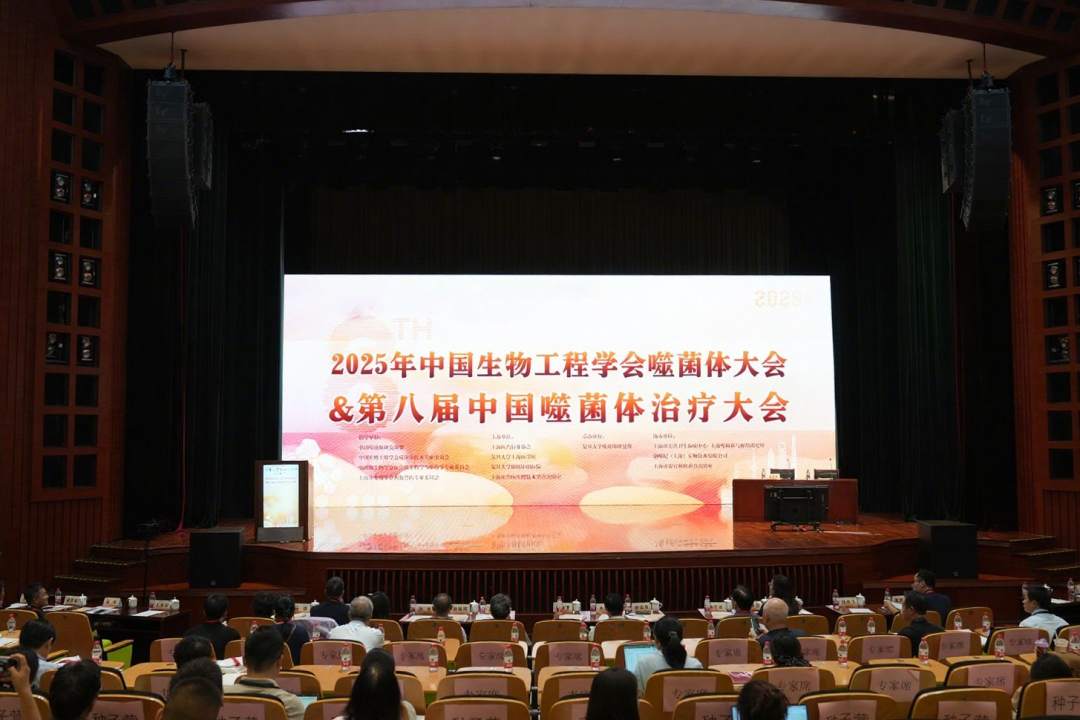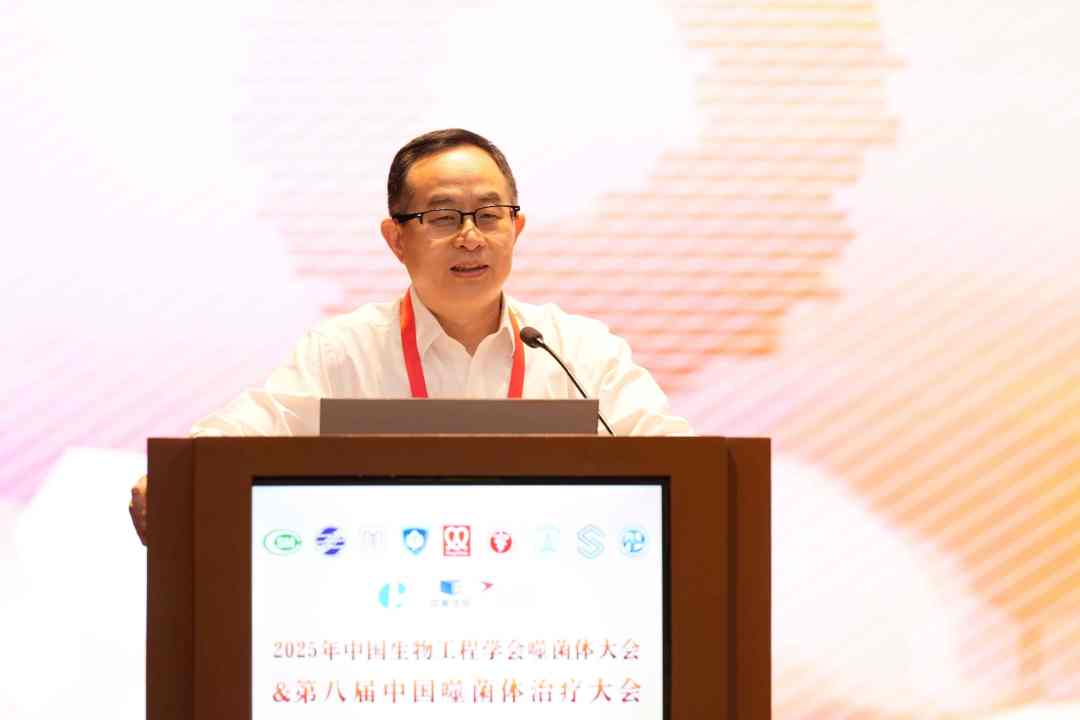From August 19 to 23, the 2025 Bacteriophage Conference of the Chinese Society of Biotechnology and the 8th China Bacteriophage Therapy Conference was held at Zhongshan Hospital, Fudan University. During the event, the 2025 National Key R&D Program “Frontier Biotechnology” Bacteriophage Special Projects were jointly launched, comprising two major initiatives:
“Development of Safe and Efficient Engineered Bacteriophage Therapy Technologies and Clinical Research”, led by Zhongshan Hospital, Fudan University.
“Research on Key Technologies for Developing Safe and Efficient Bacteriophage Preparations and Clinical Treatment of Drug-Resistant Bacterial Infections”, led by Beijing University of Chemical Technology.
These projects bring together resources from government, industry, academia, and research sectors, marking China’s transition from laboratory exploration to systematic clinical validation in phage therapy. This effort will vigorously promote the industrialization and standardization of phage therapy in China and accelerate the formation of internationally influential Chinese solutions.

Currently, the global rise in antimicrobial-resistant infections is diminishing the efficacy of conventional antibiotics, while the threat of “superbugs” continues to intensify—not only increasing mortality risks associated with common illnesses such as pneumonia but also complicating medical procedures including surgery and chemotherapy due to heightened infection risks. Against this backdrop, bacteriophage therapy, designed to precisely target bacteria, has emerged as one of the most promising alternative antimicrobial approaches, garnering widespread research and clinical interest.
As one of China’s most influential annual academic events in phage research and clinical practice, the conference focused on advancing the development of a bacteriophage therapy system. It not only marked the launch of two national key R&D initiatives but also facilitated comprehensive academic exchanges and talent development, injecting “Chinese momentum” into addressing the global public health challenge of antimicrobial resistance.
Concurrently, the conference hosted the second Bacteriophage Therapy “Seed Camp,” which covered the entire workflow from fundamental phage theory, isolation and purification techniques, and quality testing methods to clinical application standards, regulatory policy analysis, and translational case studies. Through a combination of systematic training and practical implementation, the camp aims to cultivate emerging talent in the field and advance phage therapy from theoretical research to broader clinical applications.

Professor Zhu Tongyu, Vice Dean of Shanghai Medical College of Fudan University, Director of the Fudan University Phage Research Institute, and academic leader in kidney transplantation at Zhongshan Hospital, emphasized that global phage research has entered a phase of accelerated breakthroughs, with technologies such as AI screening expanding treatment boundaries. China has made initial progress in areas including phage preparation development and personalized therapy, with regions like Shanghai establishing a collaborative framework integrating research, clinical practice, production, and regulation. He noted that this conference is expected to drive advancements in mechanistic studies and technical standards, helping to establish an integrated “Chinese pathway” from laboratory to clinic that will benefit patients with drug-resistant infections in China.
Since its inception in 2018, the China Bacteriophage Therapy Conference has been successfully held seven times, attracting nearly a thousand experts from countries including China, Belgium, the United States, and Georgia, along with nearly ten thousand participants. It has become a benchmark academic platform in the field of basic and clinical phage research in China.
